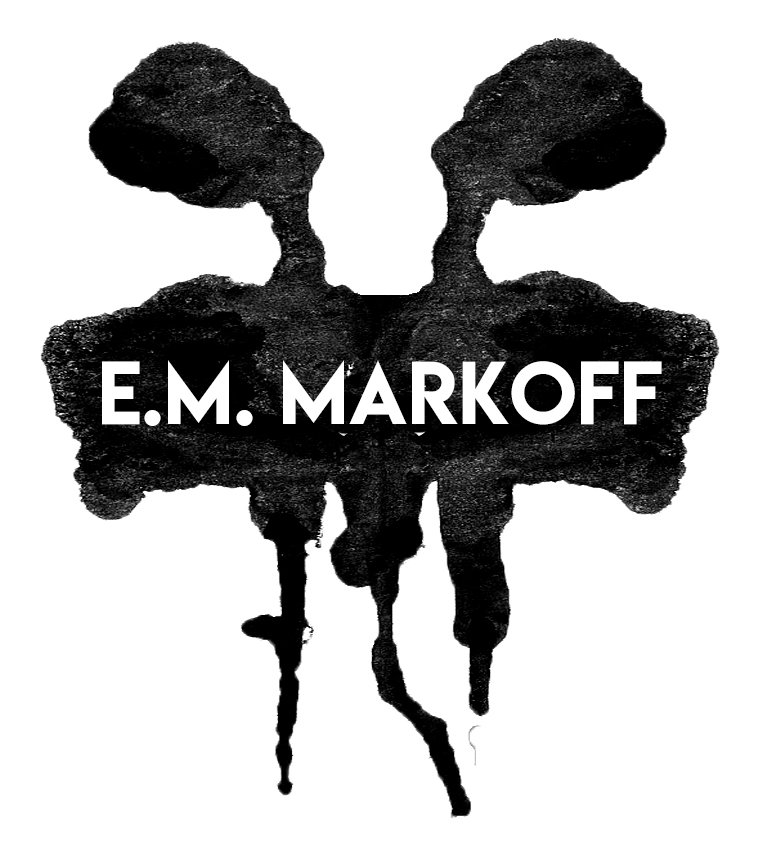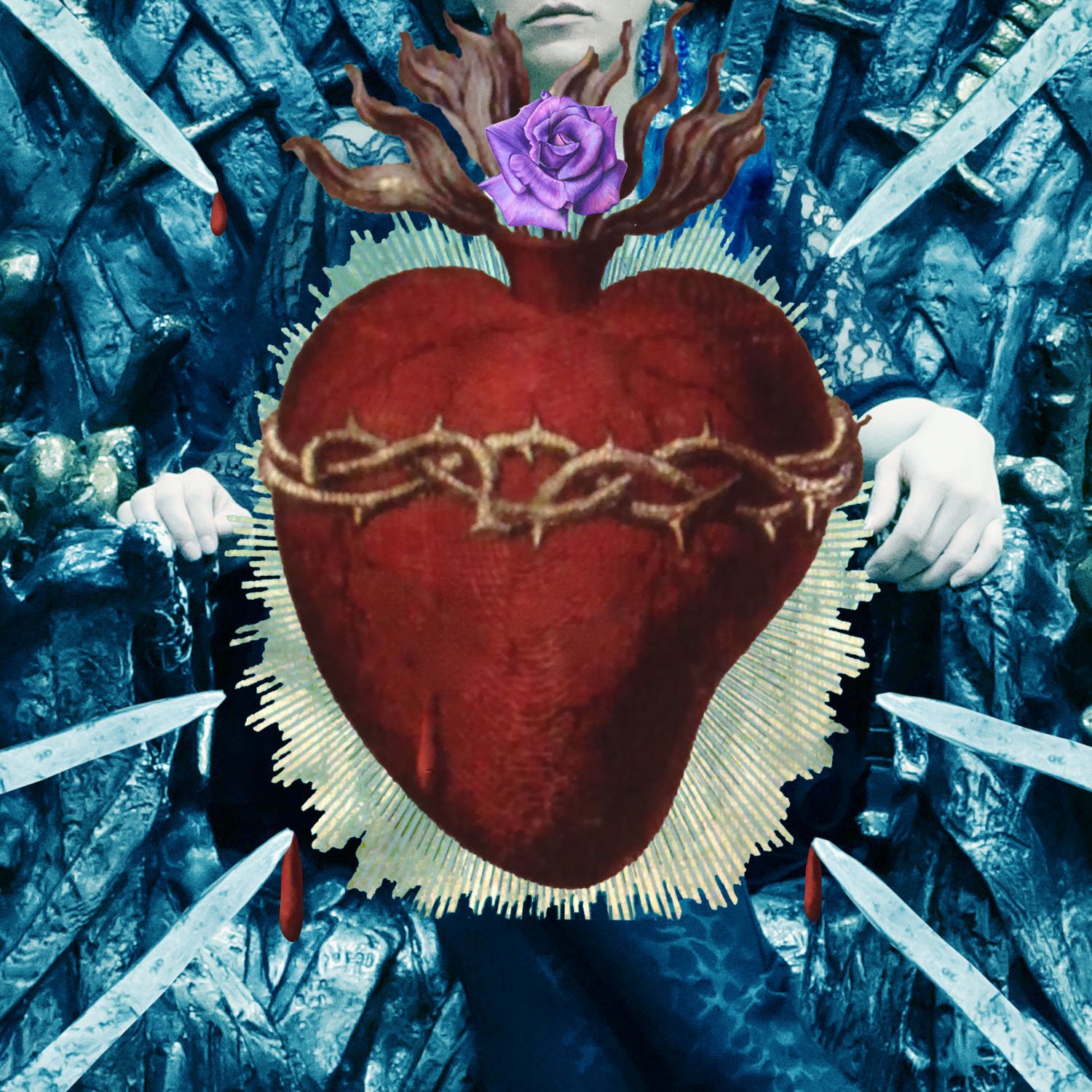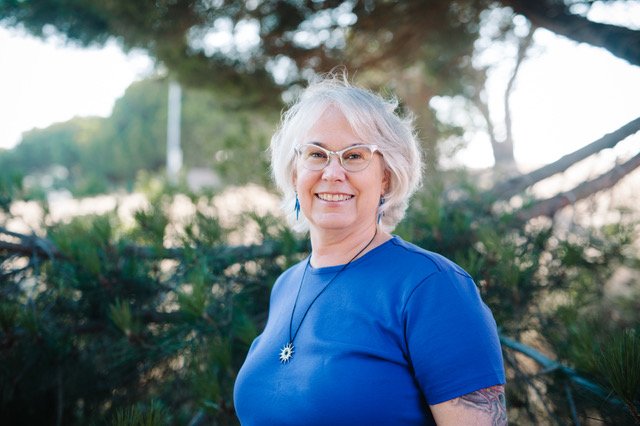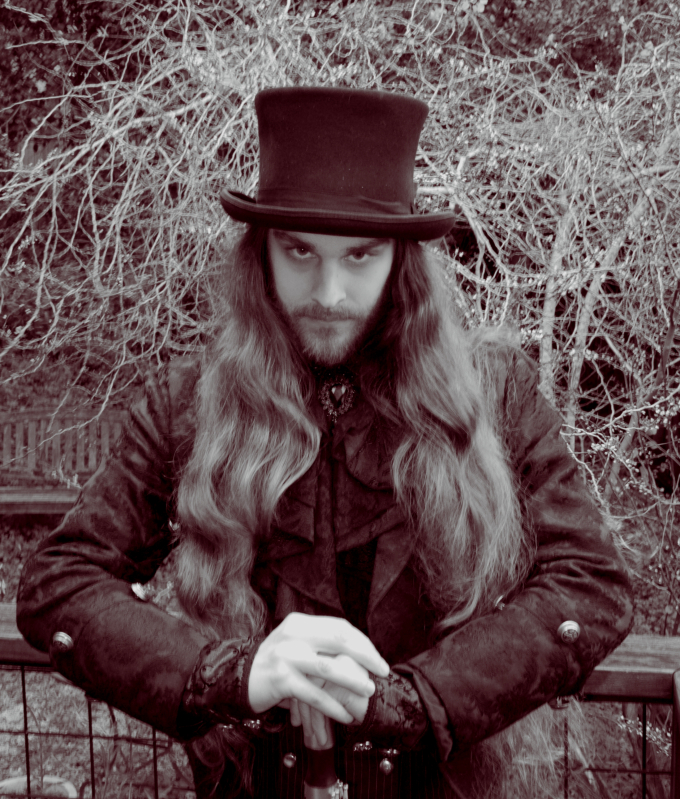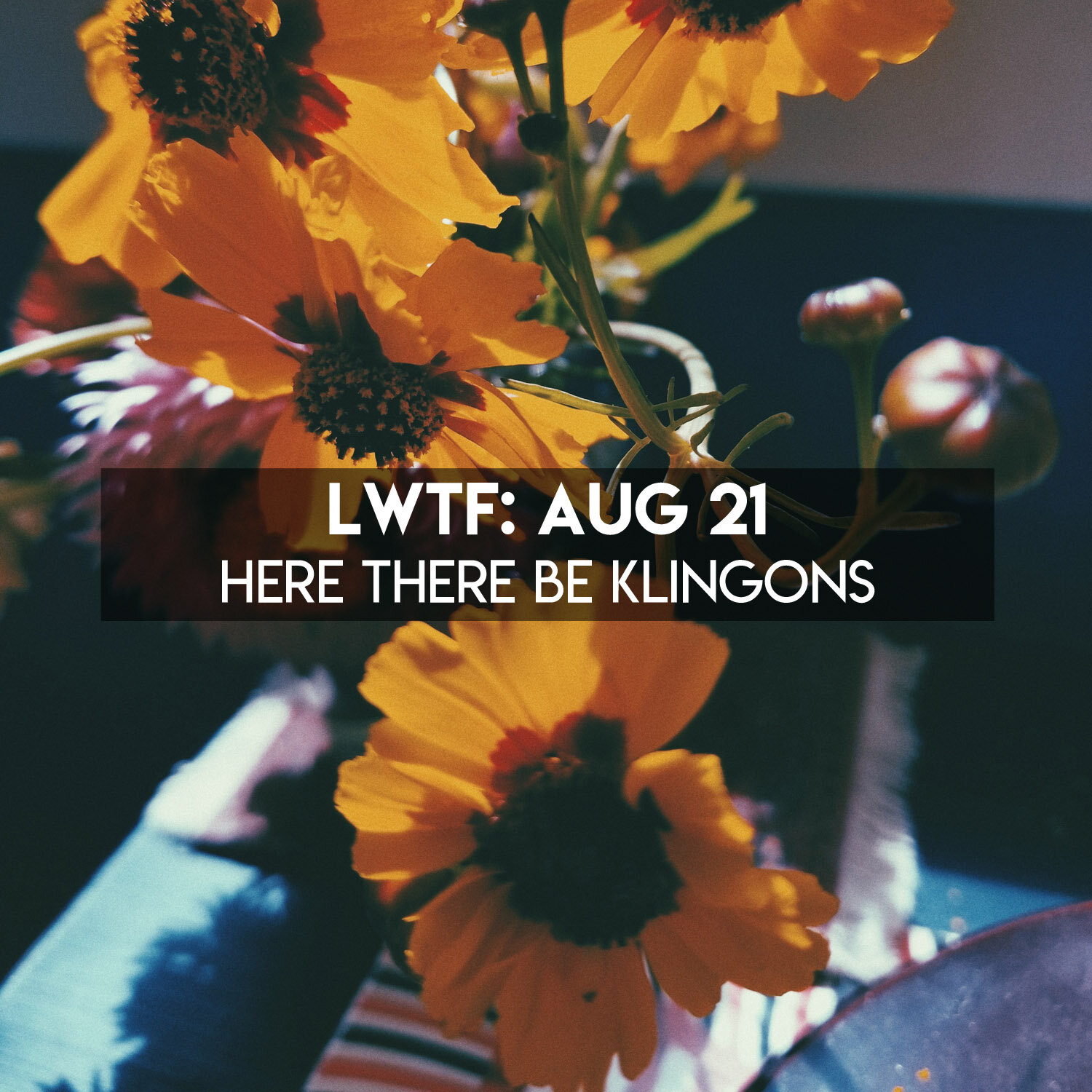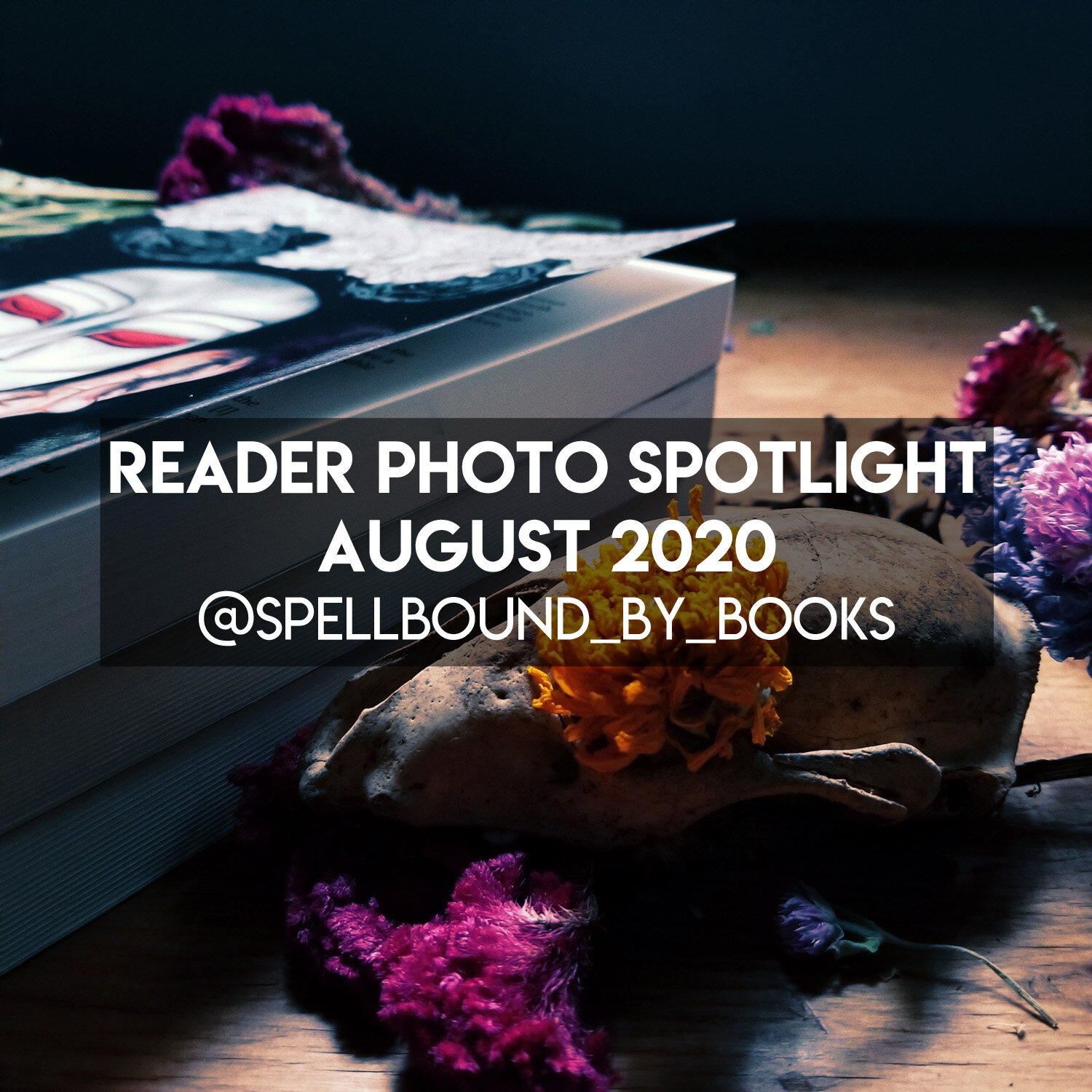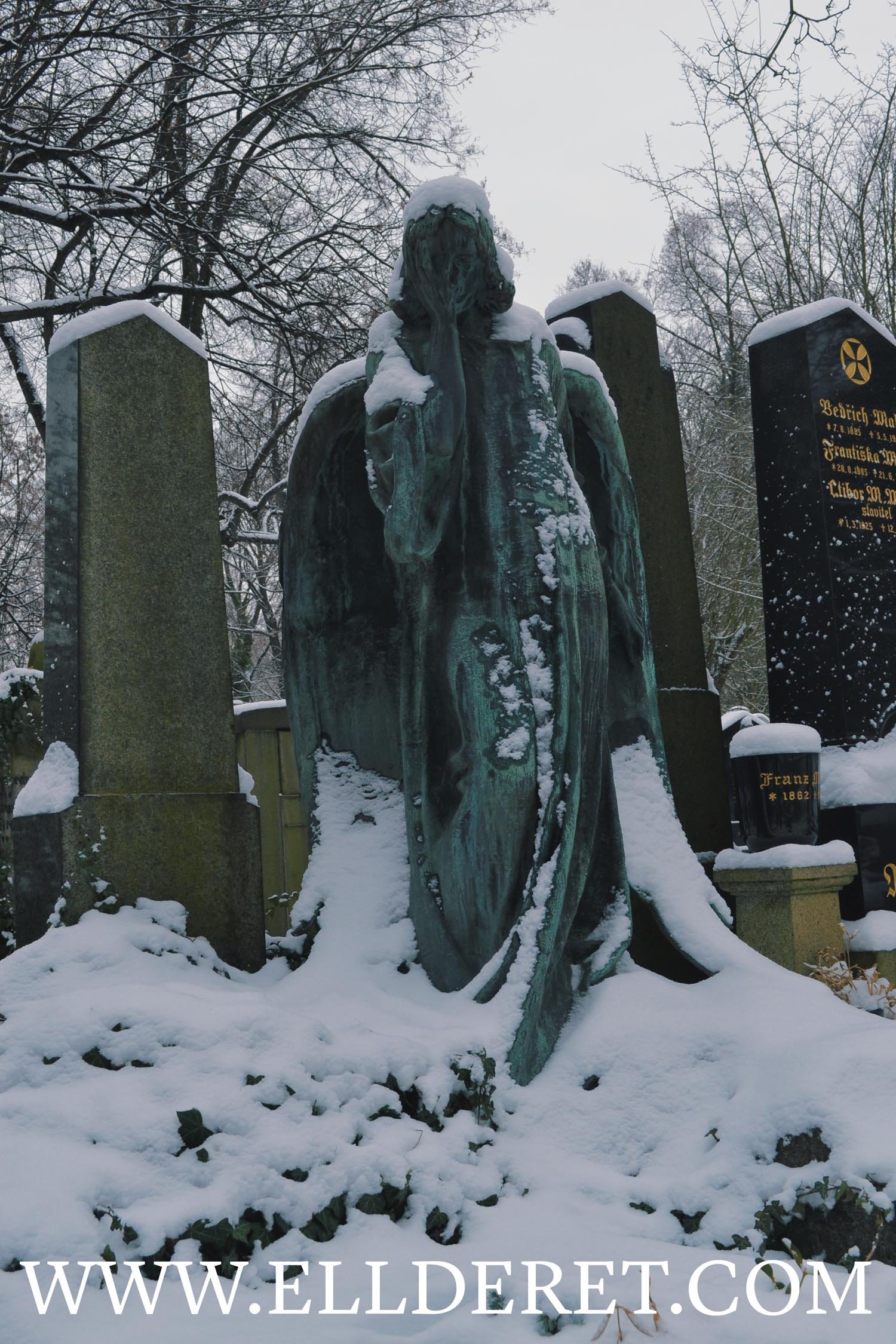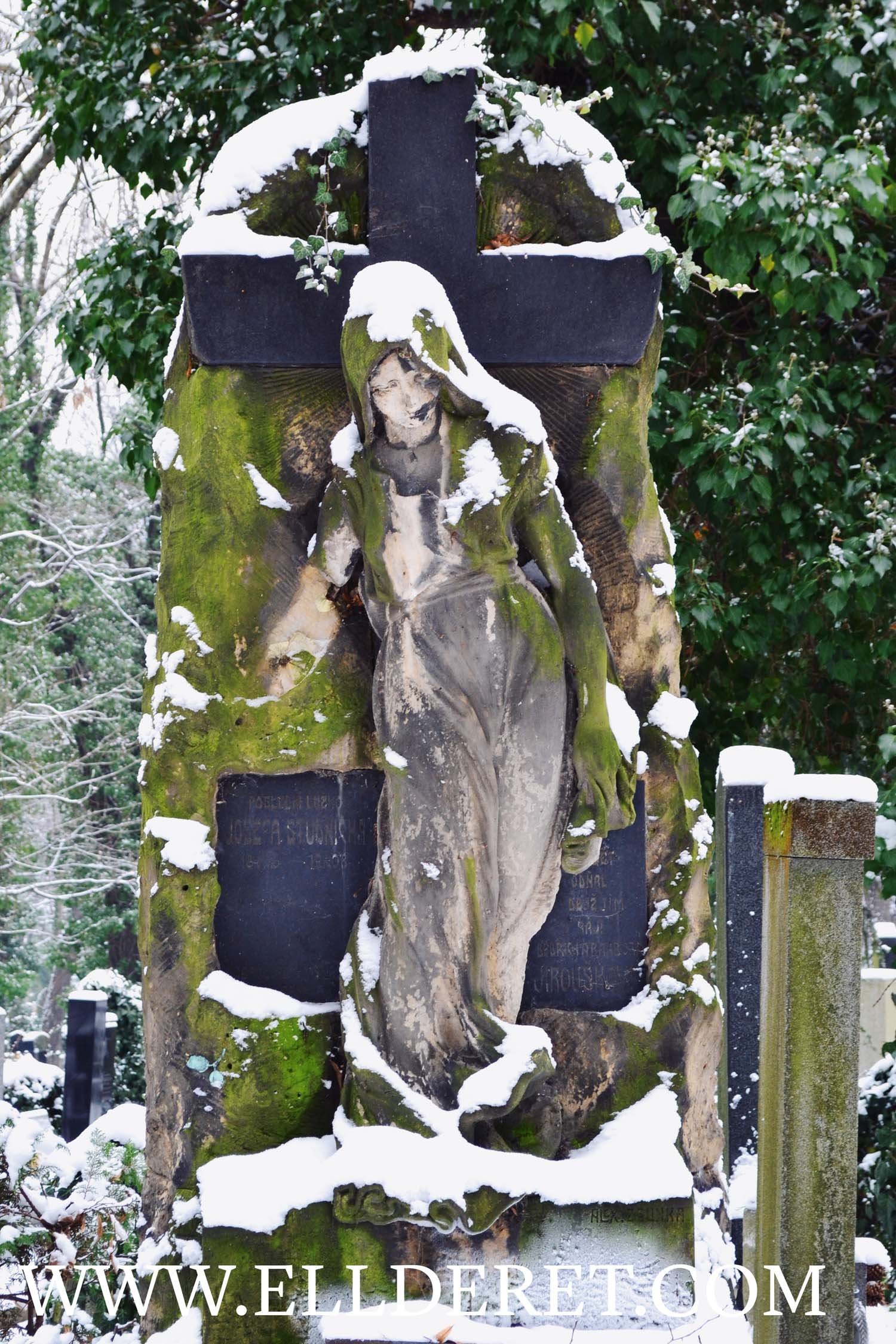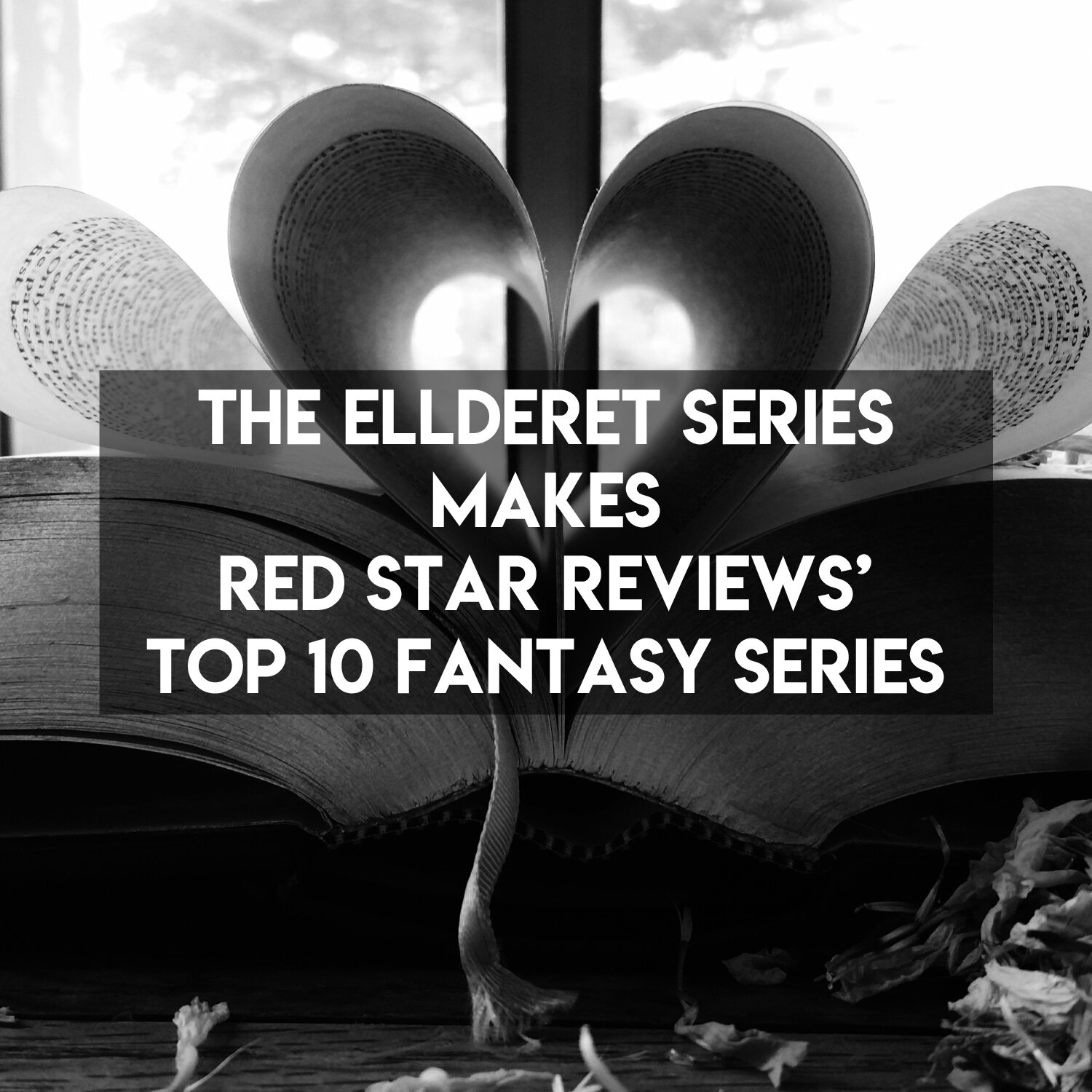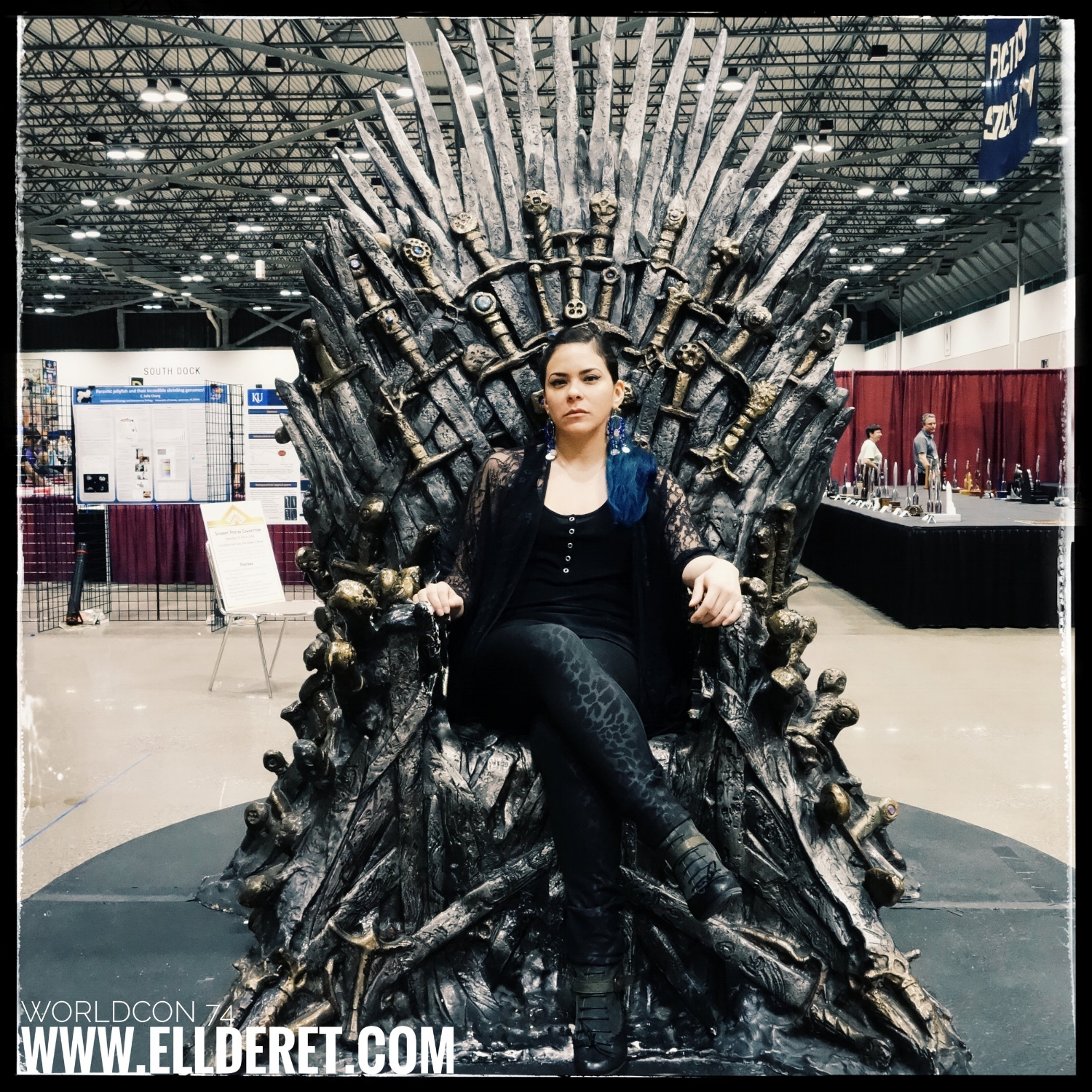When Writing Advice Becomes Toxic: Stop Policing My Identity as a Xicana
Grab your favorite drink and sit back, because I’m about to share with you why I don’t believe in a one-size-fits-all solution to writing or worldbuilding.
When I first published The Deadbringer in 2016, Amazon’s Kindle Direct Publishing platform was still a relative newcomer in the traditional publishing scene. Independent publishing wasn’t seen as a legitimate business (which it is) and was often referred to as “vanity publishing.” And for the record, you better believe I laughed out loud at that last bit.
In an effort to combat the stigma associated with self-publishing at the time, and to bring validity to my own work, I attended establishment book conventions such as WorldCon and SFWA, some of the biggest science fiction and fantasy industry award shows.
I made it a point to be an active participant in these spaces and volunteered to moderate or be a speaker on panels. I jumped at any chance to read my work before an audience, which I discovered was something I genuinely loved. I also attended many panels about the ever-changing landscape of the indie publishing world, and on how I could improve my craft as a writer. This education (because that’s what it is) included writing workshops and critique groups.
After all, these particular conventions have been legitimized by the traditional publishing industry and are considered professional settings. Since I had no formal background in creative writing, I thought to myself, what better place to learn?
And who am I to question the professionals . . .
WHEN WRITING ADVICE BECOMES TOXIC
My experience with teachers in the Western academic setting has seldom been great: I struggle to learn and I often don’t present well, letting anxiety get the better of me. I’m much better at learning when in smaller groups or by myself, outside the standardized tests and other bureaucracy of the traditional “educational system.” But of course, that isn’t what the industry (or publishers, or employers) are looking for, and I’ve always been made to feel less because of it.
I carried that chip on my shoulder for a long time. It doesn’t help that in spaces such as SWFA and WorldCon there are those—almost always cis-, white males with hard-ons for European history—who weaponize their education to make you feel like you’re a fucking idiot.
I experienced first-hand the systemic racism within the science fiction, fantasy, and horror communities. It sucks to discover that you and your stories aren’t really wanted unless you’re willing to make a few changes—which in my case required erasing my identity. And this is that I’m a light-skinned Xicana with hazel eyes.
But I wanted to succeed, and opportunities that I otherwise would’ve never had came my way because I was an active participant in these legitimized spaces. So I sucked it up and dealt with it. There are a number of examples I could cite where my identity was policed, but I want to focus on the moment when I said to myself, Fuck this writing advice.
For a long time, I tried to follow the advice of other authors, both indie and traditional, to mold my brain to their styles, to conform my habits to theirs. I especially felt this pressure when I began working on the prequel novella To Nurture & Kill—a story about a wandering mercenary who has been tasked to care for a child with dark, dangerous powers. As background, part of the story is set in the city of Florinia, which is described as having a universal educational system and a festival dedicated to the local corn harvest.
And yet, at a writing workshop where I submitted the first 6,000 or so words of To Nurture & Kill for critique, I was told by some fellow authors in the workshop that Florinia’s educational system and its Corn Festival didn’t “work” because “none of these elements existed in medieval Europe, so readers will think that you don’t know what you’re talking about, and your story will be judged as bad writing.”
When I spoke up and mentioned that I wanted to see myself represented in fantasy and that while these elements might not have existed in medieval Europe, they did exist in Mesoamerica, I was met with the following: “Yes, but you have to understand that your readers don’t know that. All they’ll see is that you’re a writer who doesn’t know what they’re talking about and it will pull them out of the story. Think about trade.”
Of course, in the abstract “thinking about trade” is not bad advice, as it is important to think about what goods are native to your secondary world, which are imported, etc. But in this instance, these authors centered European Whiteness as the norm for a fantasy setting, as the default lived experience shared by all. The concepts of what educational systems existed, what trade items were available, were weaponized to white-wash my voice, my stories.
When I tried to further explain where I was coming from, I was talked down to and dismissed. I finally just shut up and let them explain to me why they were right, and why I was wrong. I just wanted the experience to be over.
This “well-meaning advice” fixated on how to improve my craft as a writer by eliminating the ethnic elements. The advice was not how to improve my writing or refine my worldbuilding, but to mold me into what these authors considered a Real Author. And to them, being a Real Author meant there was no room for my identity.
There Is a Difference
I’m grateful to the many BIPOC authors that have shared their experiences, who’ve started scholarships to attract more BIPOC talent, who’ve worked hard to obtain positions of authority within establishment institutions and to champion change from within. There is strength and healing in learning that you’re not alone in your experiences; it’s way too easy to gaslight yourself into believing the issues of discrimination and gaslighting don’t go that deep, when, in fact, they do.
Thankfully, now a few years further on, I’m very blessed to be in a writing group that gives me real, objective feedback on my drafts, like tips on how I can bring more emotion to scenes or characters, more excitement to a brawl, and so on. The difference between the condescension I experienced in the past and the good-faith critiques of my current group is like night and day.
Looking back, it’s terrifying to realize how lost I’d become, because of how BIPOC identities are policed under the guise of “well-meaning writing advice.” Because when all is said and done, policing BIPOC identities is another form of upholding Whiteness as the accepted lived experience; it says you’re welcome to sit at our table, but leave your culture at the doorstep.
Article and images created by E.M. Markoff
The Purple Rose in image three is original artwork created by Pink Pigeon Studio for Tomes & Coffee Press.
Guest Post | The ‘Death’s Garden Revisited’ Playlist by Loren Rhoads
When I put together the original Death’s Garden book in the early Nineties, I worried that its subject matter would be really dark. After all, I was asking people to write about their relationships with cemeteries. Instead, the book turned into a celebration of life, family, community, and so much more.
The first book came together almost by accident. When I decided to put together a sequel all these decades later, I was much more intentional about its contents. I was looking to underline my belief that every day aboveground is a good day. Cemeteries help to put so much in perspective.
One of the most fun things I’ve done to promote the second Death’s Garden book is to assemble a playlist. I asked each of the contributors for their “favorite cemetery song” and I left it up to them to decide what that meant. Not everyone participated. Some suggested more than one song.
The song I started with, “Ain’t No Grave” by Crooked Still, sets the pace for the playlist. It’s a propulsive pop country take on the old gospel song, with tight vocal harmonies and virtuosic banjo playing over standup bass. It wears its religious roots upfront, but I love the shade of meaning it gives to the song that follows: “Pet Sematary” by the Ramones, which was written for the soundtrack of the movie based on the Stephen King novel.
Photo provided by the author | Kickstarter campaign live until April 16, 2022!
The third song, “Bury Me Face Down” by grandson, was new to me, even though the single came out in 2016. It quickly became an earworm, as have a number of the songs on the list.
As a matter of fact, I was really proud of the spectrum of songs filling the list. They span from folk songs and murder ballads through country and gospel and from rock to Goth to Industrial to classics. There are a couple of instrumentals from movie soundtracks alongside “In Memory of Elizabeth Reed” by the Allman Brothers Band and “Dreams of Wounded Knee” by Native American recording artist Bill Miller.
Some songs, like “Pet Sematary,” were suggested by several people. Some songs, like “Long Black Veil,” were suggested by multiple artists, but I felt I could only choose one version. Even though I already had Johnny Cash on the playlist for “Ghost Riders in the Sky,” I felt like I had to go with his version instead of the cover by the Bastard Sons of Johnny Cash, which was also suggested. I personally like Hugh Laurie’s take on “St. James Infirmary,” but once someone chose Louis Armstrong’s classic, I was glad to include it.
When the contributors (including E. M. Markoff!) joined me for a party on Facebook last weekend, I suggested that everyone listen to the playlist as we conversed online. Even though we were scattered across the US and Canada, the comradery and common playlist brought us together. Songs about cemeteries can make you feel good.
See for yourself by checking out the playlist on Spotify: https://open.spotify.com/playlist/4S0255SPm7grf5NShTbLgT?si=a183ec1bca4749e4
You can preorder Death’s Garden Revisited on Kickstarter until April 16: https://www.kickstarter.com/projects/lorenrhoads/deaths-garden-revisited-relationships-with-cemeteries
About the Author:
Photo provided by the author
Loren Rhoads is the editor of Death’s Garden: Relationships with Cemeteries and Death’s Garden Revisited. She’s also the author of 199 Cemeteries to See Before You Die and Wish You Were Here: Adventures in Cemetery Travel.
Book Blurb:
Genealogists and geocachers, travelers and tour guides, anthropologists, historians, pagan priestesses, and ghost hunters all venture into cemeteries in Death’s Garden Revisited.
They discover that cemeteries don't only provide a rewarding end to a pilgrimage, they can be the perfect location for a first date or a wedding, the highlight of a family vacation, a cure for depression, and the best possible place to grasp history. Not to mention that cemetery-grown fruit is the sweetest.
Spanning the globe from Iceland to Argentina and from Portland to Prague, Death’s Garden Revisited explores the complex web of relationships between the living and those who have passed before.
I'm a Contributing Author for the Kickstarter Campaign 'Death's Garden Revisited: Relationships with Cemeteries' (Project Ends 4/16)
Aside from working toward the upcoming publication of The Faceless God (ebook pre-order is now available on Amazon), I also have a short personal essay that will be published in Death's Garden Revisited by Loren Rhoads (author of 199 Cemeteries to See Before You Die). Her new book, which she is funding through Kickstarter, collects 40 powerful essays, complete with pictures, to illustrate why people visit cemeteries. This death-positive project has already exceeded its $1,000 goal and has unlocked a fair number of its stretch goals, including "online reading by contributors via Zoom"! I love reading my work to an audience and look forward to doing so in the near future.
My essay is about my trip to the Olšany Cemetery during the winter, and if you want to learn more please consider donating to the Kickstarter campaign. Pledges start as low at $5, which gets you a vintage cemetery postcard from the author’s own personal collection. The book will be in color and in addition to my essay, I’m also contributing my own pictures from the Olšany Cemetery. And because I had so many to chose from, below is a taste of what the pictures will look like. Please note that these pictures won’t be in Death’s Garden Revisited. I want to keep the pictures that are in the book a surprise :)
Only two more stretch goals remain, and if the project reaches $5k then the book release party will be held in a cemetery!! My black heart couldn’t be happier. I know Kira from the Ellderet series would totally be on board with this project; it’s most certainly his cup of coffee. Fun fact: the campaign was backed by author Brandon Sanderson -- yup, that Brandon Sanderson!
Stay tuned for a guest post from Loren Rhoads where she talks about the playlist of favorite cemetery songs she put together for Death’s Garden Revisited!
Wishing everyone a wonderful day!
EMM
Fuck Cancer. The Faceless God ebook is Still Being Published on 8/27/2022
Welcome to the first post of 2022! I hope the New Year has been kind and that everyone is staying safe. So, I'm just going to jump straight into what's been going on with me as it's directly affecting my career.
Note: The information in this post was originally published in my Newsletter of the Cursed on 3/31/2022. It’s been edited and revised for this blog.
Welcome to the first post of 2022! I hope the New Year has been kind and that everyone is staying safe. So, I'm just going to jump straight into what's been going on with me as it's directly affecting my career. I found a lump on my breast the same evening I got back from Rose City Comic Con in early September of last year. I was not seen by a doctor until November, but eventually my biopsy came back positive for breast cancer, more tests ensued, and on January 19 I had a lumpectomy. On the positive side, the tumor was small and hadn't spread beyond my breast. But on the negative side, the pathology report and genomic testing showed the cancer was fairly aggressive. To make sure it's gone for good and doesn't come back, I started chemotherapy in March and will be continuing treatment until May, and then undergoing radiation.
Needless to say, this all sucks, but I'm not going to let cancer fuck with the world of the Ellderet. More than anything, I want to put The Faceless God in your hands, my dear readers. The Faceless God ebook is still on schedule to be published on 8/27/2022 through Amazon. The paperback will follow shortly after, as it takes a bit more work for me to assemble (formatting, interior artwork, new chapter headers, etc). In the meantime, you can download a sneak peek over on BookFunnel, including the prologue and the first two chapters. Please note the artwork on the sneak peek cover is not the final cover art for TFG.
The next couple of months are going to be intense, but to quote a lyric from one of my favorite songs by Nine Inch Nails, "nothing can stop me now." You can now pre-order The Faceless God ebook on Amazon, and know that your pre-order helps put my stories in front of other readers.
Thank you for coming along with me on this crazy ride that is a writer’s life!!
Teipanoc (laters),
EMM
Guest Post | Redemption by Catherine Schaff-Stump
Like most readers, I know what I like. I have a weakness for troubled souls who turn it around. For me, the redemption arc is one of the most satisfying aspects of a good book.
A casual skim of my bookshelves stories where characters become better in spite of themselves. There’s Pride and Prejudice, where Lizzy Bennett and Fitzwilliam Darcy give up their biases for love.
Original image pulled from https://cathschaffstump.com/
Like most readers, I know what I like. I have a weakness for troubled souls who turn it around. For me, the redemption arc is one of the most satisfying aspects of a good book.
A casual skim of my bookshelves stories where characters become better in spite of themselves. There’s Pride and Prejudice, where Lizzy Bennett and Fitzwilliam Darcy give up their biases for love. On the shelf below it, I see The Count of Monte Cristo, where even revenge-driven Edmond Dantes learns how to forgive and start a new life. The list goes on: The Last Unicorn, where Schmendrick figures a few things out; the Rivers of London series, where I’m eagerly watching to see if Lesley May comes out the other side of her descent into angst-laden bad decision making; and The Adventures of Kavalier and Clay, in which the titular characters have to learn that the decisions that allow them to be true to themselves are the only decisions that allow for their redemption. Even the book my new novel The Wrath of Horus is patterned on, Dante’s Inferno, is a story about a guy turning his life around in the right direction because damnation is a bad option.
Image pulled from https://cathschaffstump.com/
I enjoy writing the redemption arc as much as I enjoy reading it. The Wrath of Horus is book three of the Klaereon Scroll series, and it is a descent into darkness for all the characters, but especially for Gregorius Klaereon. When we first meet Gregorius, he is the quintessential bad boy. I mean, come on. Look at his Byronic picture on the cover!
Gregorius has been guided toward his Trial with the god Horus by Horus himself, who has taught Gregorius he is better than everyone else, just like Horus is. Greg swaggers and talks with his fists, but something that Horus hasn’t taught Greg lurks beneath the surface of Greg’s actions. Greg believes he is responsible for causing the deaths of his parents. His bravado and his aggressive posture keep people away from this essential truth: In Greg’s mind, he is unlovable, and those who get close to him get hurt. In the book, Greg is abused, and he feels deep down he deserves it.
I have writer friends who don’t like Greg, who find him distasteful and irredeemable, a petty bully they have little empathy for, who makes the people around him suffer. What makes a character potentially redeemable? There’s a line I think can’t be crossed. As we launch The Wrath of Horus, I’ve posted an article elsewhere about Set, who I don’t think I can redeem, based on the severity and brutality of his crimes. Set’s motivations also make him irredeemable. Greg, on the other hand, has possibility.
Greg suffers because of Set. If redemption is partly suffering, as Dante suggests it is in The Inferno and Purgatorio, Greg goes through the physical act of paying for his sins. Greg comes through his experience to understand both himself and others in different ways. Most importantly, Greg understands from his family and friends that he doesn’t deserve suffering, that he doesn’t need to drive people away, that he can be loved.
What happens in the next book, The Wisdom of Thoth is largely up to Greg. I can’t tell you for sure if he is destined for redemption, because I haven’t written that book yet, but I do know the door is open, and Greg has the option to step through.
And I am a sucker for a good redemption arc after all.
Image provided by the author
Cath Schaff-Stump writes fiction for children and adults, from humor to horror. She is the author of the Klaereon Scroll series and the Abigail Rath Versus series. She lives and works in Iowa, teaching English. You can find her online at Facebook, Goodreads, Amazon, @cathschaffstump, and cathschaffstump.com, and follow her Kindle Vella serial The Autumn Warrior and the Ice Sword.
About The Wrath of Horus
For Gregorius Klaereon, his Trial with the god Horus isn’t about winning or losing. It’s about the fight. His temperament aggressive, his anger on display for all to see, Greg is a direct contrast to his brother Marcellus, the perfect Lord Klaereon, the prophet who can do no wrong. How Marc tolerates Greg is a mystery to Greg himself, especially as Greg knows deep down that Greg is responsible for the deaths of his parents.On the eve of the Klaereon birthday celebration, two days before Greg’s Trial, Greg fights with his cousin Flavia Borgia, and the two of them activate a reality shard which sends them, Marc, and others to the Abyss. There, they are judged and scattered throughout the nine circles. Greg, alone, discovers his Trial was the least of his worries as he is confronted by Set, the god of destruction, in a desolate landscape where his shadow powers no longer work. While Greg endures, certain his rightful punishment has found him, Marc and the others scramble to reunite, rescue Greg, and make their way to the Golden City of the banished Egyptian pantheon, desperate to find a way home.
Links:
Subscribe to Cath’s Newsletter: https://cathschaffstump.com/newsletter-sign-up/
Learn more about the Klaereon Scroll Series: https://cathschaffstump.com/the-klaereon-scroll-series-2/
Check out Cath’s Blog: https://cathschaffstump.com/blog/
Guest Post | The Heart of This Morbid Life by Loren Rhoads
When I was a kid, I went to a sleepover at a friend's house. Her family were strict evangelical Christians, which makes what happened later even more inexplicable.
Original image provided by Loren Rhoads
When I was a kid, I went to a sleepover at a friend's house. Her family were strict evangelical Christians, which makes what happened later even more inexplicable.
There were a gang of us there, all sixth-grade girls: Sherry, the two Lisas, Raeann, and me. I wonder now if we were celebrating someone's birthday, but it was so long ago that I don't remember. For that matter, I'm not sure who suggested we play "light as a feather, stiff as a board." Sherry and the Lisas all had older sisters, so one of them must have learned from an older girl.
When it was my turn, I sat in a high-backed wooden chair, arms on the armrests, eyes closed. Sherry stood behind me, rubbing her fingers lightly in circles over my temples. The point was to hypnotize me. Everyone repeated "Light as a feather, stiff as a board" over and over. Sherry shushed the other girls when they giggled.
My body relaxed by degrees, slumping into the chair. Eventually, I felt as if my soul flew out of my body, rushing upward toward the ceiling. I traveled through the house, which looked like a model or doll house, like a rat's maze with no roof. I watched her dad watching TV in the bedroom and her sister talking on the phone.
Image provided by Loren Rhoads
Back where my body sat in the dining room, my friends each stuck out two fingers on both hands. They slipped their fingers under my thighs and butt and lifted my body off the chair. I'm not sure how far they planned to raise me, but the process was complicated by the arms of the chair. As they tried to work out how some of them could hold me up while the others reached around the chair's arms, I could hear their voices as if at a distance.
When they juggled, then dropped me, I woke up from the trance.
It was the most incredible experience. The things I saw seemed so very real, things that eleven-year-old me would have had trouble imagining.
That's the mindset that's informed the rest of my life and led to my newest book. This Morbid Life is a memoir told through essays: stretching from taking prom pictures in a cemetery in the rain to spending a couple of days in a cadaver lab, from traveling the world to visit dead people in museums to standing beside my brother's coffin, from smuggling absinthe before it was legal to eating bugs for fun. I hope you'll join me on my adventures.
Loren Rhoads is the author of 199 Cemeteries to See Before You Die and Wish You Were Here: Adventures in Cemetery Travel. She was the editor of Morbid Curiosity magazine and the book Morbid Curiosity Cures the Blues: True Tales of the Unsavory, Unwise, Unorthodox, and Unusual. Her most recent book is This Morbid Life, a memoir comprised of 45 death-positive essays.
About This Morbid Life
What others have called an obsession with death is really a desperate romance with life. Guided by curiosity, compassion, and a truly strange sense of humor, this particular morbid life is detailed through a death-positive collection of 45 confessional essays. Along the way, author Loren Rhoads takes prom pictures in a cemetery, spends a couple of days in a cadaver lab, eats bugs, survives the AIDS epidemic, chases ghosts, and publishes a little magazine called Morbid Curiosity.
Originally written for zines from Cyber-Psychos AOD to Zine World and online magazines from Gothic.Net to Scoutie Girl, these emotionally charged essays showcase the morbid curiosity and dark humor that transformed Rhoads into a leading voice of the curious and creepy.
“Witty, touching, beautifully written, and haunting — in every sense of the word — This Morbid Life is an absolute must-read for anyone looking for an unusually bright and revealing journey into the darkest of corners. Highly recommended!” — M.Christian, author of Welcome To Weirdsville
Sales links:
The paperback at Amazon: https://amzn.to/3mhZajO
The ebook at Amazon: https://amzn.to/3kcFlrP
Bibio.com: https://www.biblio.com/book/morbid-life-loren-rhoads/d/1424501894
Get signed copies from Loren’s bookstore: https://lorenrhoads.com/product/this-morbid-life-autographed-1st-edition/
Happy Indigenous Peoples' Day 2021
Happy Indigenous Peoples' Day ✊
It's important to remember that the indigenous peoples of the Americas are alive today and that they are not just an anecdote in a history book. Their cultures, beliefs, and stories are not static, are not relegated to the past, and exist in the here and now.
Happy Indigenous Peoples' Day ✊
It's important to remember that the indigenous peoples of the Americas are alive today and that they are not just an anecdote in a history book. Their cultures, beliefs, and stories are not static, are not relegated to the past, and exist in the here and now.
Too often, indigenous peoples and their ways of life are treated as extinct, or as some exotic curiosity. For example, the History Channel’s Ancient Aliens show boldly states in the episode description that the "Mayan people vanished" while the episode appears to imply they collaborated with extraterrestrials. Sadly, I remember growing up believing that the Mexica (Aztecs) were wiped out, because it was what my American history class taught.
But this type of misinformation can be stopped if more people speak up and call it out as the erasure and exploitation that it is. One way to do this is by advocating for a curriculum that centralizes the indigenous experience from the perspective of indigenous peoples, such as teaching the awful truth about the history of Indian Boarding School policies in the United States. Or maybe the next time someone says that an indigenous group is "extinct" or that their culture is "dead," correct that person and let them know that’s not true. I know this is easier said than done, especially if you're in an environment that isn't BIPOC friendly or overly emphasizes European and Western values. Unless we speak up, change can't happen, so let's work together to make change happen.
Read more about historical Indian Boarding School policies. H/T to @speaknahuatl for the link to The National Native American Boarding School Healing Coalition.
List of Audio Drama Links for The Deadbringer
Below are the web links to each of the HorrorAddicts.net podcast episodes, with The Deadbringer audio drama embedded within their respective episodes. You can also listen on iTunes and Google Podcasts. Happy listening! 🎧
If you’re a fan of Horror, I highly suggest you check out HorrorAddicts.net, a podcast that discusses and reviews horror entertainment. The podcast is in its 16th season with this season’s theme being Cultural Horror. It’s a great way to discover BIPOC authors and creators from all over the world. And I’m one of the authors featured in season 16, with the first ten chapters of The Deadbringer being serialized for audio!!
I’m grateful to HorrorAddicts.net for producing The Deadbringer audio drama and for giving my book a home on their bi-monthly podcast. HUGE shoutout to the voice actors who volunteered their time and labor.
You can check out some behind the scenes of me recording my lines and working on the scripts over on my IG Highlights. I’ve also been keeping notes of what recreating The Deadbringer for audio has been like and plan on posting a blog about my experience in the future, so I hope you’ll look forward to that.
Below are the web links to each of the HorrorAddicts.net podcast episodes, with The Deadbringer audio drama embedded within their respective episodes.
List of Audio Drama Links for The Deadbringer
Episode 1: The Shining City (HorrorAddicts.net Ep 192; Theme: Black Vampires)
Episode 2: Locked Doors (HorrorAddicts.net Ep 193; Theme: Okinawan)
Episode 3: The Bastion (HorrorAddicts.net Ep 194; Theme: Gothic Romance)
Episode 4: Corpse Road (HorrorAddicts.net Ep 195; Theme: African)
Episode 5: Corpse Hill, Part 1 (HorrorAddicts.net Ep 196: Theme: New Zealand)
Episode 6: Corpse Hill, Part 2 (HorrorAddicts.net Ep 197; Theme: Time Travel)
Episode 7: Rain of Blood (HorrorAddicts.net Ep 198; Theme: African American)
Episode 8: Sleep (HorrorAddicts.net Ep 199; Theme: Mexican)
Episode 9: A Chance Encounter (Theme: 200th Show Special)
Episode 10: Revelations, Part 1 (Theme: African American)
Episode 11: Revelations, Part 1 (Theme: Polynesian/Pacific Islander)
Episode 12: Time, Part 1 (Theme: African American)
Episode 13: Time, Part 2 (Theme: Diversity in Horror)
Note: The audio will be compiled all in one before season 17 of HorrorAddicts.net (April 2022).
Cast of Voice Actors for The Deadbringer
E.M. Markoff as Narrator and The Stranger
Intro, outro; Ep 1, 2, 3, 4, 6, 7, 8, 9, 10, 11, 12, 13
James Seo as Kira Vidal
Ep 1, 2, 4, 5, 6, 7, 9, 10, 12, 13
Rish Outfield as Eutau Vidal
Ep 2, 3, 4, 7, 8, 10, 11, 12, 13
Emerian Rich as Narrator and Sal Zem
Ep 3, 4, 5 (narration), 7, 9 (narration), 12
Kadriah Wade as Elia the Herbalist
Ep 1, 10
Ep 2, 4, 6, 7,
Ep 8, 11
DJ Pitsiladis as Tim, Bastion agent
Ep 4, 7
Ep 1
Intro/Outro Theme song for The Deadbringer audio drama
Produced by
HorrorAddicts.net
Scripts by
E.M. Markoff with assistance from Emerian Rich
Stay in touch!
Subscribe to my blog, connect with me on social media, or read my books :)
Read the books already? Please consider leaving a review on Amazon. It really helps me out and makes a difference in helping readers find the books. <3
Reader Photo Spotlight: @tldr_bookreviews
This month’s featured reader is @tldr_bookreviews! Many thanks to her for the lovely photograph of The Deadbringer. Give her a follow at @tldr_bookreviews.
AN ODE TO ELLDERET READERS, WHO ARE SOME OF THE DAMNED BEST PHOTOGRAPHERS 💙⚔️
This month’s featured reader is @tldr_bookreviews! Many thanks to her for the lovely photograph of The Deadbringer. Give her a follow at @tldr_bookreviews.
Stay in touch!
Subscribe to my blog, connect with me on social media, or read my books :)
Read the books already? Please consider leaving a review on Amazon. It really makes a difference in helping others take a chance <3
Mexica New Year 2021: The Year of Chicnahui (9) Calli (House)
Welcome back <3 I hope everyone’s March has been going well. Quick post sharing an event to celebrate Mexica New Year, 9 House. This link will take you to the website where you can find all the deets. The first event starts tomorrow at 6 am with a live Sunrise Ceremony.
Stay safe and healthy, everyone!
